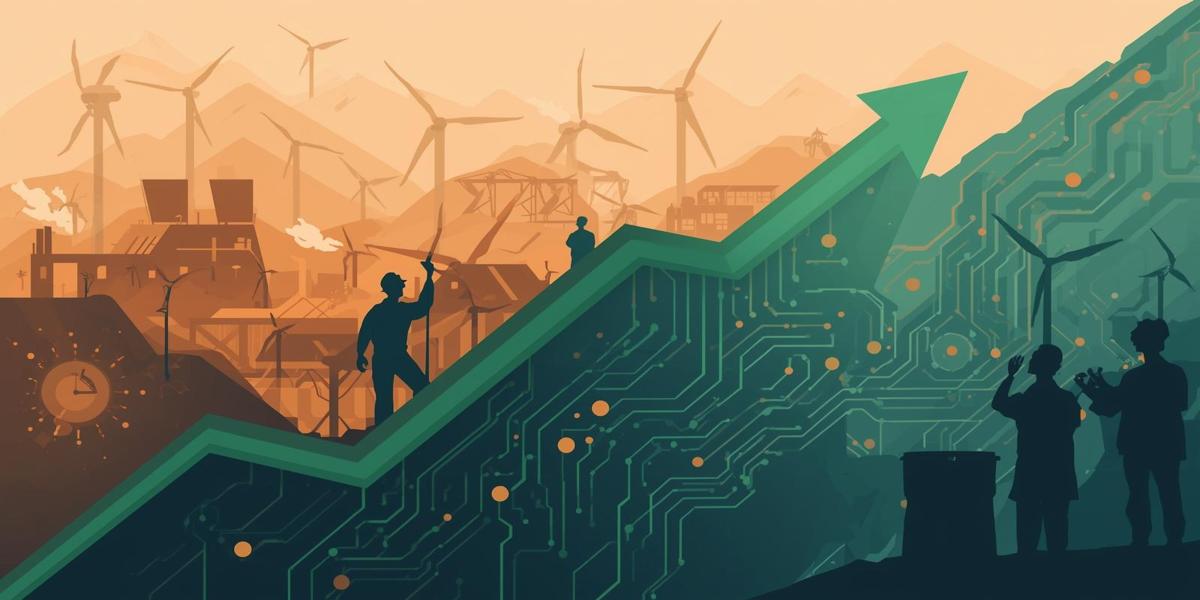Beyond Growth at Any Cost
For decades, the dominant narrative in business was speed: grow faster, scale bigger, capture markets at breakneck pace. Investors rewarded companies that could expand at all costs, even if profitability remained a distant dream. That story is starting to crack under the weight of rising debt, climate pressures, and shifting consumer expectations. Today, the new economy is less about pure acceleration and more about adaptation. Governments, investors, and companies are rethinking what “growth” even means-shifting focus from raw expansion to sustainable, resilient, and measurable outcomes. This pivot isn’t a retreat from ambition; it’s a recognition that unchecked growth without resilience is no longer viable.
The Rise of Scarcity-Driven Innovation
Unlike the tech boom of the 2000s, where innovation often solved convenience problems such as ordering food faster and sharing photos easier, today’s wave is born from scarcity. Energy shocks, supply chain disruptions, and geopolitical rifts have forced companies to innovate not for luxury, but for survival. Battery recycling, localized manufacturing, and water-saving technologies aren’t passion projects, they’re lifelines that can determine whether an industry lives or dies. Consider Europe’s energy sector, which has been forced to pivot toward renewables and storage faster than expected, not out of ideology but necessity. The businesses that thrive in this era are not the flashiest, but the ones that turn constraints into competitive edges. They show that scarcity, rather than abundance, has become the engine of modern invention.
Capital’s New Compass
The venture capital model itself is being rewritten. Instead of chasing quick wins with consumer apps and social platforms, funds are pivoting toward “deep fundamentals”-energy storage, agri-tech, logistics, and cybersecurity. What was once considered boring is now commanding billion-dollar valuations, because infrastructure that keeps economies running has become the most reliable bet. Investors are realizing that pipes, ports, and power grids are not only critical to stability but also fertile ground for innovation. The irony is striking: while consumer markets continue to chase the next viral app, serious money is flowing into the sectors that rarely make headlines but quietly shape the future. This doesn’t mean consumer tech is dead, it means that capital is recalibrating to reward long-term durability over short-term hype.
The Workforce Recalibration
Another transformation is happening in labor markets, and it’s reshaping corporate strategy. Workers are no longer just seeking jobs; they’re demanding balance, flexibility, and purpose. This shift has gone far beyond pandemic-era adjustments—remote-first models, skills-based hiring, and four-day work weeks are proving to be not only viable but, in some cases, more productive. Companies that ignore these demands face record turnover and escalating recruitment costs, even if their financials appear strong on paper. Meanwhile, forward-thinking organizations are reimagining how teams are structured, flattening hierarchies, and investing in training that keeps employees adaptable. Innovation isn’t just about products anymore—it’s about organizational design. And in a world where talent is as scarce as raw materials, the firms that get culture right may have the strongest competitive edge.
What the Next Cycle Looks Like
If the last decade was about hypergrowth, the next will be about smart growth—disciplined, sustainable, and globally integrated. Nations are already investing heavily in resilient infrastructure, from semiconductor plants to renewable grids, as they scramble for independence in critical sectors. Corporations, too, are doubling down on energy efficiency, diversified supply chains, and financial prudence, knowing that the market punishes fragility. For investors, the cycle will favor firms that can prove they can scale without breaking; companies with strategies built not just on expansion, but on endurance. This is less of a sprint and more of a long-distance run, where endurance, foresight, and adaptability will determine the winners. It’s a shift that redefines competitiveness itself, moving away from the loudest disruptors to the most reliable builders.
The Takeaway
The global economy is undergoing a quiet but profound recalibration. Growth is no longer measured just in GDP points or market caps, but in resilience, adaptability, and credibility. The companies and nations that embrace this shift won’t always generate the loudest headlines, but they’ll be the ones writing the rules of the new economic order. What looks like moderation today may in fact be the foundation for the next great expansion. In the end, the winners will not be those who scaled fastest, but those who learned how to endure, adapt, and thrive when the ground beneath them kept shifting.






